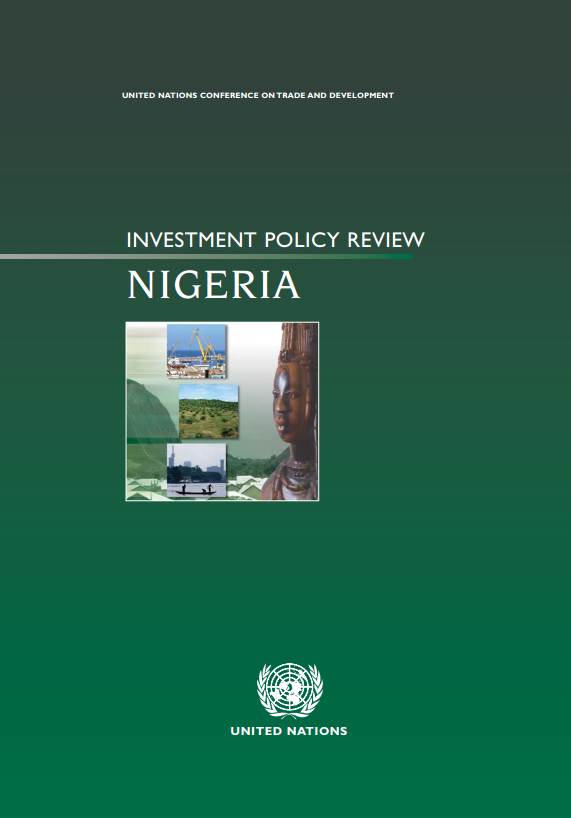Investment Policy Review of Nigeria
The Review focused on the objective of increasing non-oil FDI inflows to Nigeria. Historically, FDI to Nigeria outside the oil sector has been low. For long periods since independence, FDI has been restricted by indigenisation policies or hampered by a poor investment climate. Nigeria removed virtually all restrictions to FDI entry in 1995 and is currently extending the scope for FDI by inviting private investment into most areas of the regulated public infrastructure and utilities sector.
Reforms carried out under Nigeria´s home-grown development strategy are more advanced than generally appreciated outside Nigeria. These include measures addressing both macroeconomic and investment climate issues. Despite these accomplishments, Nigeria continues to attract low quality FDI in manufacturing. In this regard, there is little evidence of the participation of foreign affiliates in the country to the process of integration into the regional and global production networks of the transnational corporations that characterize more advanced strategic corporate response to globalization. Few and very basic linkages exist between foreign companies and local suppliers.
Against this background, the IPR of Nigeria considers what needs to be done to enable FDI to make its full contribution to the orientation set by the Government.
According to the analysis presented in the report, the conclusions call for the adoption of a National Investment Policy based on an FDI strategy that would lead to dynamic investment growth beyond oil exploitation with a focus on a strong manufacturing sector, including the agro-allied industries. Nigeria should adopt policies that induce and support foreign affiliates to focus on high value added as a necessary condition for reaping and maximizing the potential benefits of FDI to the economy.
The report also emphasizes the need to improve the overall environment for doing business and to adopt an effective investment promotion approach. In this context, the report recommends to design and implement a strategy to attract non-oil FDI articulated around a set of key measures which aim at:
- improving the regulatory framework
- investing in physical and human capital
- taking advantage of regional integration and reviewing external tariffs
- fostering linkages and local industrial capacity
- strengthening institutions dealing with investment and related issues.
UNCTAD has assisted the Government in a number of ways. It:
- produced a Blue Book on Best Practices in Investment Promotion and Facilitation;
- provided advice at a presidential retreat on the establishment of a one-stop shop for investment, including a digital one-stop for investment promotion services;
- provided technical assistance on incentive schemes and required fiscal reform, strengthening of investment promotion, and reorientation of current export processing zones into industrial development zones. The recommendations on these issues were adopted by the "Presidential Committee on the Review of Waivers, Incentives and Concession" in February 2008.
Other reports: Blue Book of Nigeria
















